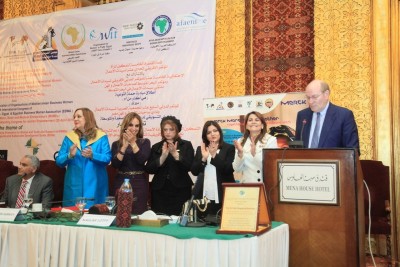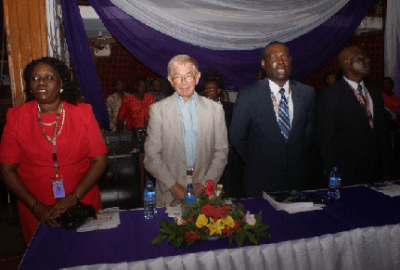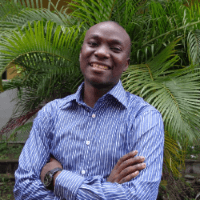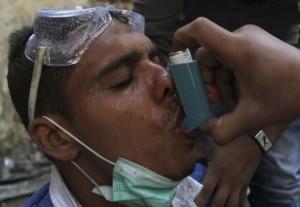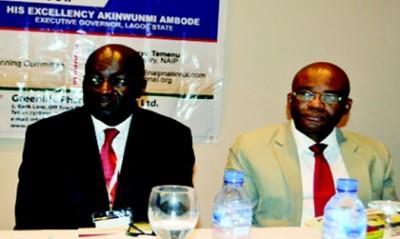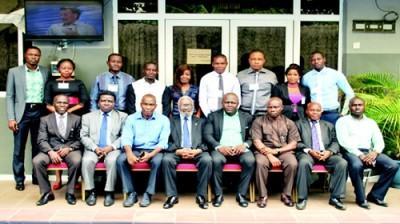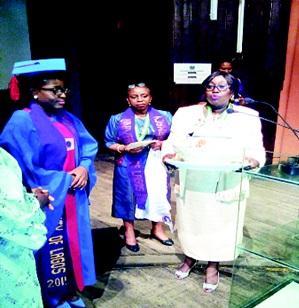 Asthma is described as a respiratory condition marked by attacks of spasm in the bronchi of the lungs, causing difficulty in breathing. It is usually connected to allergic reaction or other forms of hypersensitivity.
Asthma is described as a respiratory condition marked by attacks of spasm in the bronchi of the lungs, causing difficulty in breathing. It is usually connected to allergic reaction or other forms of hypersensitivity.
Asthma (from the Greek άσθμα, ásthma, “panting”) by definition is a disorder that causes the airways of the lungs to swell and narrow, leading to wheezing, shortness of breath, chest tightness, and coughing.
It is caused by inflammation in the airways. When an asthma attack occurs, the muscles surrounding the airways become tight and the lining of the air passages swells. This reduces the amount of air that can pass by.
In sensitive people, asthma symptoms can be triggered by breathing in allergy-causing substances (called allergens or triggers). In a research titled, “Unmet needs in asthma treatment in a resource-limited setting: Findings from the survey of adult asthma patients and their physician in Nigeria,” Olufemi Olumuyiwa Desalu, a professor in the Department of Medicine, University of Ilorin Teaching Hospital, gave some insights into the challenge of managing asthma in the country.
Desalu argued that about 50 years ago, asthma was uncommon in Nigeria. However recent reports from different parts of Nigeria have shown a prevalence of adolescent and adult asthma in excess of 10 per cent, as well as a rising trend in the prevalence of asthma. The increase in the burden of asthma has been attributed to environmental factors such as urbanisation, industrialisation and adoption western life style
In view of this rising prevalence of asthma in our society, there is need for better understanding of the asthma patients’ perception and the treatment practice of physicians.
The Pan African Medical Journal recently published a scientific paper on “Challenges in the Management of Bronchial Asthma among Adults in Nigeria: A Systematic Review.” In the paper, it asserted that asthma management goes beyond treating patients in acute attack because the skill and competence of long term care is lacking in most doctors and this fact needs to be emphasised and addressed to improve the care.
Another reason is lack of consultation time for asthma educators or nurses with an interest in asthma, especially when the physicians are running very busy clinics. Lack of support group may also have contributed to low level of asthma education as they are known to offer additional patient support.
Further challenges encountered in asthma management in places like Nigeria include: lack of standard diagnostic equipment such as peak flow meters, and spirometers; skin allergy tests test/allergen specific IgE estimation; and equipment for exhaled nitric oxide. Histamine/methacholine challenge tests are also lacking.
In a review of 68 tertiary hospitals in Nigeria, 26 (38.2 per cent) had peak expiratory flow rate meter in the emergency rooms, 20 hospitals (29.4 per cent had spirometer; only 10 of the 68 hospitals reviewed (14.7 per cent) had skin allergy test facilities.

What is asthma attack?
An asthma “attack” or episode is a time of increased asthma symptoms. The symptoms can be mild or severe. Anyone can have a severe attack, even a person with mild asthma. The attack can start suddenly or slowly. Sometimes a mild attack will seem to go away, but will come back a few hours later, and the second attack will be much worse than the first. Severe asthma symptoms need medical care right away.
During an asthma attack, the lining of the airways in the lungs swells. The muscles around the airways tighten and make the airways narrower. All of these changes in the lungs block the flow of air, making it hard to breathe. Knowing what is happening in the lungs during an asthma attack will help you to know why it often takes more than one medicine to treat the disease.
What triggers asthma attacks?
The more industrialised a place is, the higher the prevalence of asthma, because areas with industrial/air pollution trigger asthma. Also, the more developed a place is, the more likely they would have a higher rate of asthma cases. For example, Lagos would be expected to have a higher rate of asthma cases than, say, a village. Also, it is believed that in cleaner environments, people are less likely to be exposed to some germs and particles that will stimulate it.
Effluents from cars and industries have also been associated with asthma. Other factors, including heredity and the person’s predisposition to allergies and certain conditions, can equally trigger an attack. For example, a person could be sensitive to infections, virus, bacteria, cigarette smoke, or certain types of food, drugs, a change in weather from cold to hot and vice versa. Some can also react to psychological factors.
What are the symptoms of asthma?
The most common symptom is wheezing. This is a scratchy or whistling sound when you breathe. Other symptoms include:
- Shortness of breath
- Chest tightness or pain
- Chronic coughing
- Trouble sleeping due to coughing or wheezing
Asthma symptoms, also called asthma flare-ups or asthma attacks, are often caused by allergies and exposure to allergens such as pet dander, dust mites, pollen or mould. Non-allergic triggers include smoke, pollution or cold air or changes in weather. Asthma symptoms may be worse during exercise, when you have a cold or during times of high stress.
Children with asthma may show the same symptoms as adults with asthma: coughing, wheezing and shortness of breath. In some children, chronic cough may be the only symptom.
If your child has one or more of these common symptoms, make an appointment with an allergist / immunologist:
- Coughing that is constant or that is made worse by viral infections, happens while your child is asleep, or is triggered by exercise and cold air
- Wheezing or whistling sound when your child exhales
- Shortness of breath or rapid breathing, which may be associated with exercise
- Chest tightness (a young child may say that his chest “hurts” or “feels funny”)
- Fatigue (your child may slow down or stop playing)
- Problems feeding or grunting during feeding (infants)
- Avoiding sports or social activities
- Problems sleeping due to coughing or difficulty breathing
Patterns in asthma symptoms are important and can help your doctor make a diagnosis. Pay attention to when symptoms occur:
- At night or early morning
- During or after exercise
- During certain seasons
- After laughing or crying
- When exposed to common asthma triggers
How is asthma diagnosed?
An allergist diagnoses asthma by taking a thorough medical history and performing breathing tests to measure how well your lungs work. One of these tests is called spirometry. You will take a deep breath and blow into a sensor to measure the amount of air your lungs can hold and the speed of the air you inhale or exhale. This test diagnoses asthma severity and measures how well treatment is working.
Many people with asthma also have allergies, so your doctor may perform allergy testing. Treating the underlying allergic triggers for your asthma will help you avoid asthma symptoms.
How important is early detection and treatment?
It is very important because if not treated early, asthma could damage the lungs. Inflammation means there is redness and swelling in the lungs. If the inflammation is not controlled, it could lead to what is called the remodelling of the airway. The airway could be damaged permanently if the problem is not addressed properly.
How can one prevent or control triggers?
Here are some common triggers and the actions you can take to control them. Controlling your triggers will help you have fewer asthma symptoms and make your asthma treatment work better.
Foods
Sulphites and sulphating agents in foods (found in dried fruits, prepared potatoes, wine, bottled lemon or lime juice, and shrimp), and diagnosed food allergens (such as milk, eggs, peanuts, tree nuts, soy, wheat, fish and shellfish) have been found to trigger asthma.
How to control it
- Wear a medic-alert bracelet that identifies your food allergies
- Carry injectable epinephrine to provide first aid during an emergency allergic reaction, see your doctor for more information about this. Did you know children can carry their asthma and allergy medications while at school?
- Read food labels closely to avoid eating hidden triggers
Pollen
Pollen are tiny particles produced by trees, grasses, weeds, and flowers. They are carried on the wind or by insects, and can cause asthma attacks. Air pollution can also cause asthma attacks.
- Use air conditioning, if possible, during seasons when pollen is highest.
- Keep windows closed during seasons when pollen is highest.
- Consider staying indoors during the middle of the day and afternoon when the pollen count is highest.
- If you are outside when the pollen count is high, it might help if you wash your hair before you go to bed.
- Check the air indexes, and avoid going outdoors when the pollution or pollen counts are high.
Avoid the following indoor/outdoor pollutants and irritants:
- Wood-burning stoves or fireplaces
- Unvented gas stoves or heaters
- Other irritants (e.g., perfumes, cleaning agents, sprays)
- Volatile organic compounds (VOCs) such as new carpeting, particle board, painting
- Newly manufactured materials found in floor, wall, and ceiling coverings and furniture have strong odours. Odours from glues, paints, or treatment processes give off chemical irritants, including volatile organic compounds (VOCs). This is called off-gassing.
- Air out new materials in areas with plenty of ventilation
- Maintain floor, wall and ceiling coverings properly
Asthma and pregnancy
During pregnancy, asthma symptoms will worsen for about one-third of all women. Symptoms may be most severe between weeks 29 and 36 (about the seventh to the ninth month) of pregnancy. Asthma symptoms such as coughing, chest tightness, wheezing, and shortness of breath can keep your baby from getting enough oxygen to grow well. A good rule of thumb to remember is, if you are feeling short of breath, your baby will be feeling it much more. If your asthma isn’t under control, your baby could be less healthy and smaller when born, or could even be born too early. But these things don’t need to happen because of asthma.
Asthma can be controlled so that it doesn’t hurt your baby or you. Here are the steps you can take to control your asthma and protect your baby:
Work with your doctor and other health care providers.
Go over your Asthma Action Plan to make sure it is right for you as your baby grows.
- Keep your appointments.
- Write down all the questions you have before each visit. It helps you remember to ask them all.
- Tell your doctor about any wheezing, coughing, or shortness of breath that you have.
- Tell your doctor if you notice any changes in your asthma or breathing patterns
- Tell your doctor any concerns you have about your medicines or the other parts of your Asthma Action Plan.
- Make sure you know what your doctor or asthma educator wants you to do before you leave the office.
- Take your medicines.
- Follow the directions exactly in your Asthma Action Plan about when to take your asthma medicines and how much of each medicine to take.
- Don’t stop taking your asthma medicines unless your doctor tells you to.
- Talk to your doctor before you take ANY new medicines, herbal treatments or over-the-counter drugs (those that you choose yourself at the store, such as headache, cough, or cold medicine).
Remember: Using asthma medicine during pregnancy is much safer than letting your asthma get out of control. Such asthma medicines as inhaled beta-agonists (quick relief medicines like Maxair or Proventil), cromolyn (medicines that prevent triggers from causing reactions in your lungs, like Intal), and inhaled steroids (long-term controller medicines like Flovent) are safe for pregnant women when you take them as directed by your doctor.
- Watch your asthma and treat symptoms fast.
Pregnancy is a time of change. Your asthma can get worse, better, or stay the same. If this is your first pregnancy, there is no way to predict what will happen with your asthma. If you have been pregnant before, your asthma is most likely to change—or not change—the same way it did with your last pregnancy. It is very important for you to watch your asthma closely.
- Use a peak flow meter each day, if told to by your doctor, so you can see changes in your asthma and act early.
- Know how to tell if your asthma is getting worse. Make a list with your doctor or asthma educator of the ways you can tell if your asthma is getting worse.
- Make an Asthma Action Plan with your doctor for dealing with any sign or symptom that your asthma is getting worse. Make sure you know how to use it, and get a new one if there are changes in your asthma treatment.
- Stay away from your asthma triggers.
Your asthma triggers are those things that make your asthma worse. House dust mites or damp places, animals, tobacco smoke, and very cold air are some examples of asthma triggers. You can stay away from some triggers. For other triggers, you can take action to keep them from starting your asthma. See our complete list of triggers and learn about how to avoid or reduce contact with them.
- Do not smoke or stay around people who smoke.
- Cigarette smoke makes it more likely that you will have asthma episodes.
- Smoking during your pregnancy makes it more likely that your baby will be born too early and too small. Your baby is more likely to be sick more often, too.
- If babies breathe in other people’s smoke, the babies’ lungs will not grow and work as well as they should. The baby is likely to have more colds and earaches.
- When babies live with people who smoke, they have a greater chance of developing asthma.
- If you smoke, now is the time to stop! Your health care provider will help you. Ask about it now, and find more on second-hand smoke and quitting.
Asthma and exercise
Anyone exercising hard enough may have shortness of breath. But when this happens sooner than expected, or happens along with other symptoms such as chest tightness, wheezing, or cough, then it may be asthma.
Exercise is a common trigger of asthma. The terms “exercise asthma” or “exercise induced asthma” are often used, but these are some common ways that exercise makes asthma worse:
- Exercise sometimes makes asthma symptoms worse in someone who does not usually need asthma medications (Intermittent Asthma)..
- No matter which way it happens, breathing may be even harder when the air is colder and drier. At rest, breathing through the nose warms and humidifies (moistens) the air taken in. During exercise, breathing faster through the mouth lets air that is colder and drier than usual into the lungs. The colder and drier air can trigger symptoms like coughing and wheezing.
- Once the airways are triggered the airway lining may begin to swell (inflammation), smooth muscle bands around the airway can tighten (bronchospasm), and extra mucus can be made. The swelling, tightened muscle bands, and extra mucus can partially block the airways. This makes it harder to get air in and out of the lungs. The exact way this happens may be different in traditional asthma compared to Exercise Induced Airway Narrowing.
- Activities like long-distance running, hockey, and cross-country skiing are more likely to trigger symptoms because they are held in cold temperatures or have the player working hard for longer amounts of time. Activities like walking and swimming are less likely to trigger symptoms because players use short bursts of action mixed with breaks, or are done in warmer and more humid places.
How to prevent symptoms during exercise
There are things that can be done to help prevent symptoms with exercise. Start with a warm up period of light activity before any harder exercise. Avoid exercising in cold and dry air. Avoid exercise when other triggers, such as respiratory infections or smoke, can cause more trouble breathing.
The goal is to be able to exercise without symptoms. Most people with asthma can take part fully in sports or be as active as they would like to be. They need to work with their health care provider and follow their Asthma Action Plan to be able to do this.
What are the treatment options for asthma?
There is no cure for asthma, but symptoms can be controlled with effective asthma treatment and management. This involves taking your medications as directed and learning to avoid triggers that cause your asthma symptoms. Your allergist will prescribe the best medications for your condition and provide you with specific instructions for using them.
- Controller medications are taken daily and include inhaled corticosteroids (fluticasone (Flovent Diskus, Flovent HFA), budesonide (Pulmicort Flexhaler), mometasone (Asmanex), ciclesonide (Alvesco), flunisolide (Aerobid), beclomethasone (Qvar) and others).
- Combination inhalers contain an inhaled corticosteroid plus a long-acting beta-agonist (LABA). LABAs are symptom-controllers that are helpful in opening your airways. However, in certain people they may carry some risks. LABAs should never be prescribed as the sole therapy for asthma. Current recommendations are for them to be used only along with inhaled corticosteroids. Combination medications include fluticasone and salmeterol (Advair Diskus, Advair HFA), budesonide and formoterol (Symbicort), and mometasone and formoterol (Dulera).
- Leukotriene modifiers are oral medications that include montelukast (Singulair), zafirlukast (Accolate) and zileuton (Zyflo, Zyflo CR).
- Quick-relief or rescue medications are used to quickly relax and open the airways and relieve symptoms during an asthma flare-up, or are taken before exercising if prescribed. These include: short-acting beta-agonists. These inhaled bronchodilator (brong-koh-DIE-lay-tur) medications include albuterol (ProAir HFA, Ventolin HFA, others), levalbuterol (Xopenex HFA) and pirbuterol (Maxair Autohaler). Quick-relief medications do not take the place of controller medications. If you rely on rescue relief more than twice a week, it is time to see your allergist.
- Oral and intravenous corticosteroids may be required for acute asthma flare-ups or for severe symptoms. Examples include prednisone and methylprednisolone. They can cause serious side effects if used on a long term basis.
People with asthma are at risk of developing complications from respiratory infections such as influenza and pneumonia. That is why it is important for asthma sufferers, especially adults, to get vaccinated annually.
With proper treatment and an asthma management plan, you can minimize your symptoms and enjoy a better quality of life.
What are the types of management available for asthma patients?
There are several types. A clean environment is important and asthma occurs because the child is reacting to something. So, the first method is what is called environment manipulation, where those things the child reacts to are removed from the environment. For example, a child with asthma shouldn’t be exposed to a room with rugs because of the particles and house dust in the rug. A carpet is more advisable or something that is cleaned regularly to be free of dust.
Parents who smoke should also stop smoking in the house because it could trigger asthma attacks. So, it is important to modify the child’s environment, especially if it is not a severe case.
Also, generators should not be kept near the windows because of the smoke and heat from it. Also, an affected child can be treated with drugs. The drugs are two types; the relievers and preventers. The relievers are those that work immediately. They are given to the child to relieve them to help their airways dilate. That’s why it is called relievers to relieve that acute situation. A common drug used is Ventolin, which is in tablet, injection and inhaler forms. Its generic name is Salbutamol. There are other types of drugs for treatment and there is an international treatment guideline that every doctor is supposed to know and follow its guideline. If it is an emergency, doctors use oxygen.
The preventers are usually those that work much later. What they do, as their name suggests, is to prevent asthma attacks. Many of the preventers are long active steroids. These steroids, as well as other anti-inflammatory drugs, can decrease the symptoms of asthma. Steroids have some side effects when it is taken periodically. Both types – relievers and preventers – cannot be substituted for one. The former relieves the immediate situation so the patient does not die, while the preventers are supposed to be given so that the asthma attack does not happen later. If it is an emergency case, the doctor would have to admit the patient and give oxygen and some injections.
Are there particular ways to manage asthma?
Yes, it depends on the situation. Early detection and proper treatment helps. There is what is called partnership in asthma management. In medicine, we say self-treatment is not good, but this is encouraged in asthma because it helps a lot. So, members of the family must be carried along so that whenever there are any symptoms, they would know how to prescribe the drugs to the child or check the function of their lung and all that. For example, a three-year-old might not be able to use an inhaler, so there is a special device like a pipe, which the inhaler is pressed into and as the child breathes in from the pipe, he inhales the content. Some children are too young to use inhaler because there is a coordinated action of inhalation that the child may not be able to do alone.
Should children with asthma be involved in any form of exercise?
Yes, a child with asthma can be involved in doing exercises and outdoor activities, including football and swimming. That child can even play professional football. What should be prevented are those exercises that are intensive and rigorous and take several minutes longer than necessary without a rest period.
Advice to parents of asthmatics
Parents shouldn’t panic when they are told their child has asthma. Most children, by the age of six, are likely to outgrow asthma or later in life during their teenage years from the age of 13. Up to 90 per cent or nine out of 10 children will outgrow it by the time they become teenagers.
Asthma is a chronic disease, but it usually doesn’t kill people. Deaths resulting from asthma are less than one per cent. But the major problem is that people don’t follow up on treatment, they just go and buy the inhaler and that’s it. The child should be taken to the hospital for regular checkups, say every three to six months. That would help to ensure that the child does not suffer many of the problems resulting from asthma.
Asthma could affect the psychology and even growth of the child if not properly managed. But if managed and treated properly, the child can outgrow it. Again, the parents should comply with the drugs prescribed by the doctors. They should not wait until the child has the symptoms before they give the medications. They should also keep relievers drugs at home.
Report compiled by Adebayo Folorunsho-Francis and Temitope Obayendo with additional information from: The Pan African Medical Journal and United State National Library of Medicine; American Academy of Allergy Asthma & Immunology; and Asthma Initiative of Michigan (AIM).




























